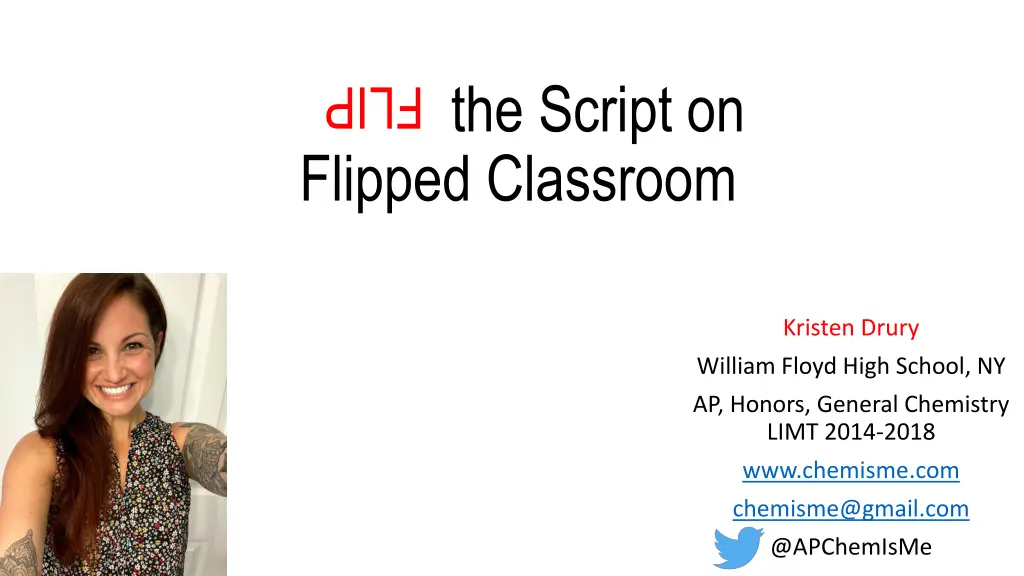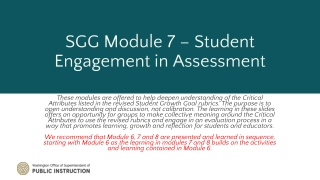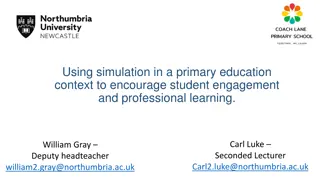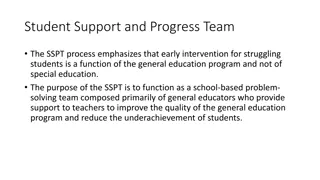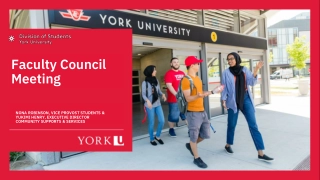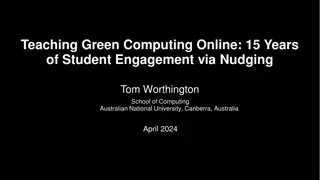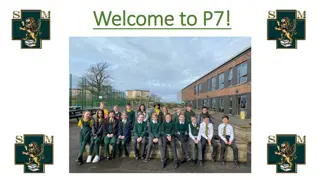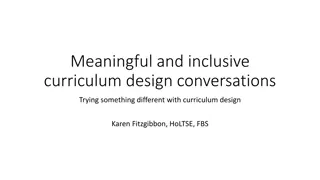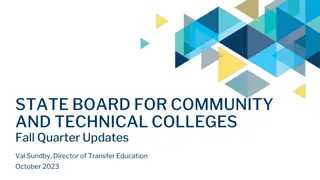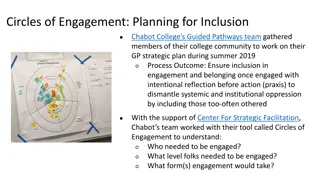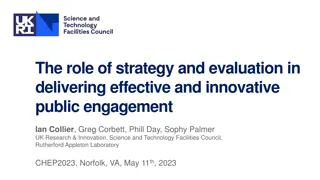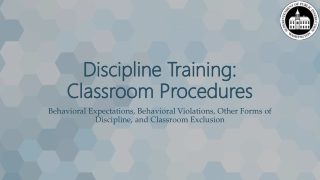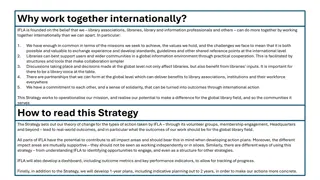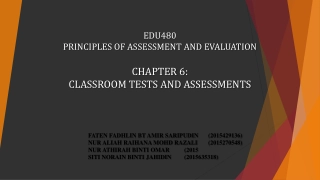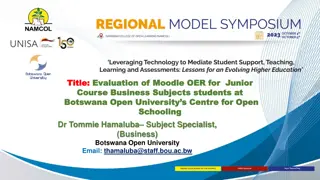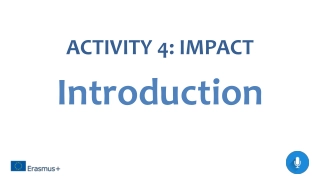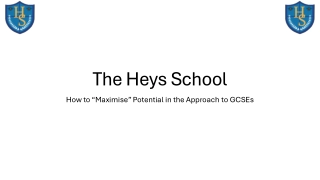Innovative Flipped Classroom Practices: Maximizing Student Engagement
Learn about successful flipping techniques from a chemistry teacher. Discover benefits, misconceptions, and research-based methods for a more engaging classroom.
Download Presentation
Please find below an Image/Link to download the presentation.
The content on the website is provided AS IS for your information and personal use only. It may not be sold, licensed, or shared on other websites without obtaining consent from the author. Download presentation by click this link. If you encounter any issues during the download, it is possible that the publisher has removed the file from their server.
Presentation Transcript
the Script on Flipped Classroom FLIP Kristen Drury William Floyd High School, NY AP, Honors, General Chemistry LIMT 2014-2018 www.chemisme.com chemisme@gmail.com @APChemIsMe
About Me I have been flipping my classroom since 2012 Started using PowerPoint, screen recorder (Screencastomatic) and YouTube! Using EdPuzzle since 2014
Part 1 Early Days 3
The Flipped Lesson Hook: Reverses the roles of homework & lecture Homework Classwork Take notes and practice introductory problem sets Review concepts and practice difficult problem sets 4
Why I was convinced to flip: Allows students to take control of the lecture: Watch and re-watch as many times as needed Pause and take notes, annotate slides Watch early, at any time of day Allows more class time for application of chemistry: More opportunities to detect misunderstandings More labs, activities, and modeling 5
Videos do not replace the teacher. Flipping does not take the place of an actual classroom. Classes are still structured. Students are not isolated while learning. Flipped videos are not just videos they are tools. Initial flipping misconceptions: 6
Initial Flipping Benefits All students were more engaged in class discussions and activities. More student centered. Absent students can easily catch up. Homework is assessed before students come into class: Misconceptions are identified faster. Immediate feedback can be given to students. 7
Research based effective educational practices One to one student-teacher contact. Cooperation among students. Active learning. Prompt feedback. Increased time on task. Communicate high expectations. Respect diverse talents and ways of knowing. Flipping the classroom can foster this culture! 8 Cross, K. P. (1999). What Do We Know About Students' Learning, and How Do We Know It?. Innovative Higher Education, 23(4), 255-270.
Class time is free for: Lab experiments (inquiry) Demonstrations POGIL activities Hands on discovery Literacy strategies Modeling Instruction Class discussions Group work and practice 9
Small Bundles of Information Choose 1-3 small objectives per lesson, 10 min max Examples: Atomic Structure Outline AP Chemistry General Chemistry 1. Rutherford Theory 2. Subatomic Particles 3. Ions 4. Isotopes 5. Atomic Mass Calcuations 6. Bohr Lewis 7. Bright Line Spectra 1. Configurations Intro 2. Configurations II 3. PES 4. Isotopes and Mass Spec 5. Light Equations 10
Why EDpuzzle? Every student has a log in. Tracks students: When they watch How many times they watch Skipping is prevented. An app is available for phones and tablets. Assess your students prior to class to drive class instruction. 11
You can edit the length of those videos, add voice overs, and add questions to any point in the video 14
Save and Upload Auto-Saved Choose classes Prevent Skipping Turn on CCs Assign start and due date 17
Typical Lesson Flow Introductory Flipped Video Additional Active Learning In class Lesson Review flipped video Formative assessment 21
Part 2 Now 22
Activity before Concept, Concept before Vocabulary Activity Concept Vocabulary
Typical Lesson Flow In class Inquiry Lesson Active Learning Flipped video Formative Assessment 24
In class Inquiry In class Inquiry Lesson Inquiry lab Inquiry Modeling Activity Driving Question Boards/ QFT POGIL Active Learning Flipped video Formative Assessment
Active Learning In class Inquiry Lesson Additional Labs New problems Simulations Argumentation sessions Active Learning Flipped video Formative Assessment
Formative assessment In class Inquiry Lesson Do Now/Ticket Out Student presentations Lab CER summaries Student generated videos Small quizzes Reflections Active Learning Flipped video Formative Assessment
Flipped Videos Activity Concept Vocabulary The Learning Cycle
Part 3 How 29
1. Create & Record Video 2. Upload to Platform 3. Edit/Embed Questions 4. Upload/ Assign to Students 5. Assess Progress 30
Tools Hyperlinked and Free! 31
1. Create & Record PowerPoint/Keynote/Prezi Record using Screencast-o-Matic 32
3. Edit 36
Crop 37
Save and Upload Auto-Saved Choose classes Prevent Skipping Turn on CCs Assign start and due date 42
Part 4 Tips 43
Recommendations Use your own videos. Students prefer their teachers voices and methods. You know the video content. Students feel you put in the effort. If you use other videos, watch the whole video and edit it. Model appropriate video watching techniques including note taking and time management skills. Assess student notes periodically: note fill ins, checks, quizzes. 44
Recommendations Do not allow students to fast forward. Grade questions before class and use questions to create do-now or discussions. Grade your homework so students put effort into their work. Provide additional videos for practice problems and redemption points. 45
Recommendations Consistently give video homework so students think about chemistry every night and know to log in. Start slow: pre-labs, review, test corrections, every other unit, trade off with teachers 46
Pitfalls Technology Concerns (proficiency, access, reliability) Videos are too long (no more than 15 min) Videos go passed the scope of the class Don t re-teach! It tells students that the video wasn t important 47
Worried they didnt watch it? Give open note quizzes periodically. Have students outline that topic in the textbook individually before joining group work. 48
Questions? Contact Me Kristen Drury www.chemisme.com chemisme@gmail.com @APChemIsMe 49
